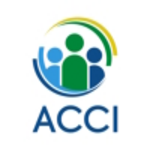
2024 Annual Conference
May 21–23, 2024
Hyatt Regency Milwaukee, Milwaukee, WI, USA
IMPORTANT NOTICE: The date, time, and room assignment of YOUR presentation is SUBJECT TO CHANGE.
Proposal authors can use this tool to see where they have been placed in the program agenda for an Oral or Poster Session.
Scroll down to search by the Submitter or Author Name, by Date/Time, or by Keywords.
Confirm your place in the schedule by following the instructionss that were emailed to you. Each presentation must have a separate paid registration. Contact the ACCI office immedicately by email at admin@consumerinterests.org to report any conflict, all corrections to the details of the presentation (including author names and the order they are listed as this is how it will be in the final program), or if you have any questions. Please be sure to reference the session title(s), date(s), and time(s) when you contact us.
E2b Examining the Concept, Measurement and Determinants of Emergency Savings
Short Description
Widespread consensus exists on the importance of emergency savings – funds set aside for unexpected expenses or declines in income – to protect themselves against economic hardship. Yet, no definition exists on what constitutes adequate emergency savings. This article reviews commonly used measures of emergency savings across five publicly available surveys to understand how different measures yield different estimates of U.S. households with emergency savings. We discuss conceptual tensions in measures of emergency savings and find that, empirically, the portion of households with emergency savings is low across differing measures. Disaggregated by household characteristics, households with emergency savings differ based on race/ethnicity, household income, employment, and age. Emergency savings is highly correlated with financial inclusion. Some of these characteristics persist even after a regression-based adjustment for household characteristics. We suggest several workplace emergency savings programs that enhance financial wellbeing of households with below median income; households headed by non-white adults, particularly African American and Hispanics; and households headed by disabled adults.
Type of presentation
Accepted Oral Presentation